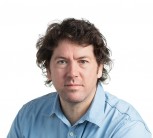We live at a time where our resources – social, economic and environmental – are more at risk than ever before. Finding sustainable solutions for the future has become urgent, especially if you consider that 9.6 million people are projected to call the earth home by 2050. Could other species hold the secrets to adapting and the changes that we need to make for a sustainable tomorrow?
The harsh environment of Marion Island – home to southern elephant seals, fur seals and killer whales – may not sound like a likely place to get answers. But its isolation and unique location (halfway between South Africa and Antarctica) makes it perfect for studying how these predators adapt to changing environments. By doing so, we can unlock secrets to their survival, providing insight to our sustainable future, especially when it comes to our food sources, says Prof Nico de Bruyn, Principal Investigator of the Mammal Research Institute’s Marion Island Marine Mammal Programme (MIMMP).
The MIMMP has been running for more than 30 years, and that’s key to the solution. “The long-term nature of our studies is opening up research avenues not previously possible with shorter datasets,” notes Prof de Bruyn. “I foresee an exponential increase in our ability to address internationally-relevant ecological, global change and other environmental questions.”
The MIMMP has been running the longest, most intensive southern elephant seal mark-recapture experiment globally. It also tracks elephant seals, fur seals and killer whales via satellite-linked devices.
The team has discovered various factors driving large mammal population dynamics and how these link to the changing environment. “We know, for example, that elephant seal numbers declined dramatically probably due to food limitation. They are now slowly recovering. However, with new information that the youngsters consume large amounts of krill, they may be under threat again with increasingly large krill fisheries in the Southern Ocean,” says Prof de Bruyn. He adds that recent observations of female elephant seals skipping breeding events open up pertinent questions about the causes and consequences, and whether changing environments are influential.
By training field personnel and students, the programme continues to build capacity for a growing science sector in South Africa. It is producing new knowledge, but also preparing tomorrow’s decision makers.
For more information, contact Prof de Bruyn on: [email protected]
For an overview of his research: https://www.researchgate.net/profile/Nico_De_Bruyn2
Prof Nico de Bruyn
January 1, 2015

 Story
Story
University of Pretoria (UP) researchers have found that the antioxidant content of certain types of tea can be likened to that found in recommended portions of fruit and vegetables.
 Infographic
Infographic
Half a cup of black tea, oolong tea or green tea contained the same amount of antioxidants with radical scavenging capabilities (RSC) as that of a 200mg vitamin C tablet.
 Story
Story
Researchers at the University of Pretoria (UP) may have identified the gene that is responsible for diet-related obesity. By exploring the role of the novel gene Slc7a8, they have made a potential breakthrough in current knowledge about the cellular mechanisms that drive fat accumulation. This understanding is crucial in developing effective treatments.
Copyright © University of Pretoria 2025. All rights reserved.
Get Social With Us
Download the UP Mobile App